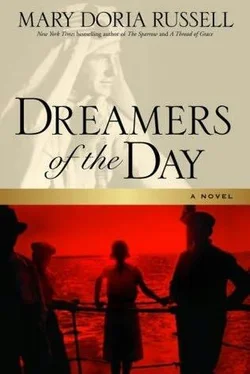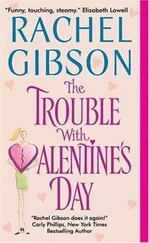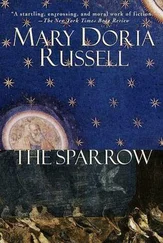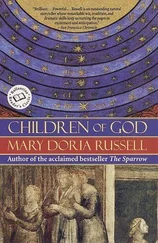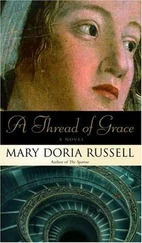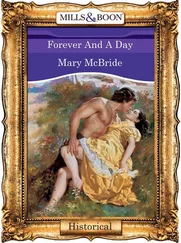Mexico was all but forgotten in the excitement.
That’s why, by the summer of 1918, a million American men had been mobilized to fight—from career officers like my brother, Ernest, to draftees straight off the farm. Ernest’s train left Cleveland carrying nearly 250 soldiers, including a boy from Wooster who seemed to have a dreadful cold. When the troops arrived on the Virginia coast two days later, more than 120 of the soldiers already had the flu. Sixty others were ill within a day or two.
In Ernest’s last letter home, he confessed that he was afraid he’d miss the war. He was so eager to embark! I doubt he mentioned his headache to anyone else. The next letter we received was from a friend of his. Ernest had been buried at sea before the boat was halfway to France. Later we learned that most of his battalion had sickened. Many died while standing on a French dock, awaiting orders in a chilly autumn rain.
In October, the military finally canceled leave and liberty, but it was too late to make a difference. Railways had distributed the influenza with the same swift efficiency that carried coal, wheat, and livestock to and from every corner of the continent. Within weeks, the flu was everywhere.
People spread the disease before they knew they had it, got sicker, brought it home, and died. Fiancées, parents, brothers, and sisters: kissed good-bye at train stations. Ambulance drivers, stretcher bearers, doctors, nurses: working until they died on their feet. Trolley conductors, shopkeepers. Teachers.
Waves of influenza broke across the nation and all the while, the war ground on in Europe. Cleveland sent forty-one thousand boys “over there.” One of my students came to see me before he left—a boy named for the great Italian patriot Garibaldi. Gary, we called him at school. He was a good student. Arithmetic was his best subject, as I recall. Off he went with the Fifth Regiment of the Ohio National Guard, to revenge bleeding Belgium and rescue poor brave France, to make the world safe for democracy and kill Huns for Mr. Wilson.
Gary visited me again after he got home, in 1919. “You were wrong, Miss Shanklin. The Grim Reaper isn’t a metaphor,” he told me. “The Reaper’s real. I saw him. We went over the top and machine guns mowed us down, like a scythe through weeds. Row after row of us. You can’t imagine, miss.”
No, not that, but I had seen men struck down in the streets of Cleveland. They’d leave for the office in the morning feeling fine. During the day, they’d complain of being hot and achy. By evening, waiting on the corner for a streetcar, they’d fall to the pavement, already dead or near to it. Gary soon became one of them. Poor boy. He had just married his sweetheart and found a job as a bank teller. He left work feeling woozy and never made it home for supper.
Even then, before the worst of it, I wanted to escape from the sadness. I was older than the lost generation of the Roaring Twenties. I began the decade too shy to dance, too homely to imagine myself of interest even to a maimed veteran, too timid to break the Prohibition laws and risk blindness drinking bathtub gin. But in the end? I was not so very different. I, too, yearned for new sights, new sounds, new people—and, yes: a new me. I wanted to believe again in peace, and progress, and prosperity.
Prosperity, at least, I would have and this one certainty: of all my natal family, I would be the last to die. My brief obituary would be written by a bored young newspaperman in 1957: “Agnes Shanklin, heiress, dead at 76, after a long illness.”
That’s what they called cancer then. “A long illness.” And don’t be fooled by that fancy word “heiress.” No single estate was all that much, but taken together and added to $1,000 of soldier’s insurance from Ernest, they totaled just enough to afford me a careful independence.
Frugality I had learned at my mother’s knee. “Use it up, wear it out, make it do.” That was Mumma’s motto, especially after the bankruptcy and Papa’s death.
In the beginning, I believe, my parents anticipated something close to the ideal marriage of the nineteenth century. They met and married late, both nearly thirty and too mature for silly romantic illusions about love. When they pledged their troth in the sight of God, they did so in the hope that theirs would be a union of souls. They understood that this would demand an equal sacrifice of personal interests. Papa would lose his place in the home; Mumma, her place in the world. He would strive for material sustenance and guard the family from the corruption of the marketplace. In return for cooking and needlework, the bearing and raising of children, she would receive shelter, food, and a clothing allowance.
Such marriages always ran the risk of becoming cold but practical business partnerships. In the case of my parents, mutual admiration rested upon an economic arrangement that seemed to suit them both. Mumma was a fine seamstress, Papa a mechanical engineer. You might not think they’d have had much in common, apart from their children, but together they reasoned out a design for a sewing machine foot that would make cording easy and automatic. In the tenth year of their marriage, walking home from church one Sunday, they hatched a plan. They would take all their savings and start a factory right in Cedar Glen, just east of Cleveland. The business could provide good, honest work for the sons of slaves who’d come north on the Underground Railway. Those men would demonstrate that Negroes were capable of skilled labor, and the business would benefit by undercutting the competition on wages.
Papa’s probity and Mumma’s piety were well known in Cedar Glen. Their good character convinced several members of their congregation that they could do well by doing good, and they agreed to invest in the venture. Papa took the idea to a banker, who steered him toward a partner said to be a person of energy and vision.
To our family’s misfortune, Papa was an honest man in a time when business was increasingly often conducted between strangers who recognized no good or god excepting only Profit. In Washington and Columbus, politicians wearing masks of unctuous respectability legislated mightily to outlaw private sin and enforce private virtue, all the while accepting money to overlook the public crimes of industrialists and financiers who made incalculable fortunes by exploiting workers and swindling investors. In that climate, Papa’s trustworthiness was the very hallmark of a “patsy.” He built the factory; his partner and the banker disappeared with the money.
For Papa, it was a matter of honor that he keep his employees working and make his creditors whole. That determination left hardly any time or money for his family. Mumma soon found it difficult to hide our circumstances, but Papa steadfastly refused help from her brother, a bachelor attorney with money to spare.
“Foolish pride,” Mumma called that. “How am I to run a proper household with what you bring home?”
“Others are worse off,” Papa said, time and again. “We shall manage without charity.”
“Easy for you to say,” Mumma would mutter, and the household would go very quiet, unspoken accusations loud in our minds.
Then one day a sympathetic neighbor lady remarked, “Your poor husband, working so hard! It’s just not fair that he should have to pay back money others stole.”
Something snapped inside Mumma. I could almost see it recoil in her. “I’d rather see Howard in his coffin,” she said, “than fall to the level of the men who bilked him.”
From that day on, Mumma made every penny count and did so with a zeal that awed us. She gave up our subscription to the family pew at church, and we found cheaper seats in the back. “God will hear our praise and prayers,” Mumma told us, “no matter where we sit.” If there was no money for tickets to attend an uplifting lecture, she went to the library for a book and read it aloud in the evening. If there was not much for supper, she would pop corn for us; it was a whole grain and filling. She raised chickens and collies, sold eggs and puppies for extra income. She gardened and canned the produce. She sewed uniforms for students at the Cleveland Training School for Nurses, and used the blue-and-white-striped scraps for the patchwork quilts that kept her children warm at night. She was so thin, so weary, on her feet from dawn to dusk. It seemed to me that she was all alone and yet so brave! What if something happened to her? Something awful?
Читать дальше
